Anticipation continues to build in the terror-free Türkiye initiative that may put an end to the campaign of violence by the PKK terrorist group.
The Peoples’ Equality and Democracy Party (DEM Party) seeks a second visit to the group’s jailed leader, Abdullah Öcalan, in time for Nevruz, a significant occasion heralding the arrival of the spring. If it happens, it will also coincide with a rare attendance by President Recep Tayyip Erdoğan to celebrations of the occasion after years.
March is a significant month for the Kurdish community, as well as the PKK, which seeks to exploit them for its own gains. This week, Nevruz is being observed across Türkiye, Turkic states and Iran. Nevruz festivities of the Kurdish community have often been hijacked by the PKK for its propaganda.
Öcalan had issued another message, again during a Nevruz celebration, at a time Türkiye had launched its “reconciliation process” to improve the rights of the Kurdish community and, thus, to eliminate the pretext for the PKK to legitimize itself. Back then, in 2015, Öcalan called on the PKK to convene a congress to lay down arms, but the process failed when the group refused to comply with calls to end violence despite its declaration of a brief “cease-fire.”
The DEM Party serves as a messenger between Öcalan and the state for its intricate links with the group and held talks with officials of government ally Nationalist Movement Party (MHP), whose leader Devlet Bahçeli is credited with launching terror-free Türkiye initiative last year, as well as officials from ruling Justice and Development Party (AK Party).
The government insists that the current initiative should be unilateral first and is waiting for the results of a congress of the PKK to convene, as Öcalan urged in a landmark call to the group in February. The congress will pave the way for the group to lay down arms and dissolve itself as Öcalan envisioned. The DEM Party said that the People’s Alliance of the AK Party and the MHP had offered no clear steps during their talks on Monday.
In an interview late Monday, Gülistan Kılıç, the DEM Party’s deputy parliamentary group chair, said government officials outlined their stance in broad terms but remained vague on addressing the party’s democratic demands.
“They used phrases like ‘a terror-free Türkiye’ and ‘the country must swiftly rid itself of this issue.’ They suggested that if weapons are silenced and the PKK dissolves, the democratic space in Türkiye will expand,” Koçyiğit said.
“But there was no specific road map or clear commitment on what steps they are willing to take,” she told Reuters. Koçyiğit said the DEM Party conveyed its priorities to authorities, including calls for reforms to anti-terror law, penal code and judicial practices, as well as an end to the practice of appointing trustees to replace elected opposition mayors (detained for their links to the PKK). She added that confidence-building steps, such as halting military operations and improving Öcalan’s prison conditions, were essential.
“The government does not see this as a matter of political momentum,” she said and suggested it will consider steps only after the PKK acts.
After attending the meetings with the DEM Party in Parliament, AK Party spokesperson Ömer Çelik said the ruling party is “not engaging in a negotiation or a give-and-take.” “Our priority in this matter is for the PKK to lay down its arms completely,” he told reporters on Monday.
In a written statement on Tuesday on the occasion of the 110th anniversary of a key World War I victory in Çanakkale, Bahçeli reiterated commitment to the initiative. He underlined that they would never engage in anything that would offend the memory of “martyrs” killed by the terrorist group.
“Successors of those who created ‘enemy-free’ Türkiye will build terror-free Türkiye,” Bahçeli said in his statement, referring to the heroic fight to stave off occupying Allied forces in western Türkiye.
On Monday evening, Justice Minister Yılmaz Tunç denied any concessions to the PKK or Öcalan in exchange for dissolution. Answering reporters’ questions at an event in the capital Ankara, Tunç said there was no discussion of the “right of hope” for Öcalan.
Bahçeli has called on the government to consider a legal amendment for the right of hope in Turkish laws, “if necessary,” for Öcalan to comply with his call. Tunç said parole, early release, or the right of hope for Öcalan were out of the question. Tunç also said Öcalan would not be allowed to issue video messages under the existing laws in response to reports that the terrorist leader may address supporters in a Nevruz call. “He may send a letter,” Tunç said.
The minister said Öcalan’s call was entirely directed at the PKK, not someone else. He highlighted that the Turkish state would continue its counterterrorism operations if the PKK failed to lay down arms and reiterated the statement of the defense minister that Türkiye would not accept a “cease-fire.”
“Our goal is to rid of our country of terrorism. We lost many in 40 years; we suffered financially. (Terrorism) has been a dagger in the heart of our thousands of years of brotherhood (with Kurds). Once this dagger is extracted, we may discuss what can heal the wound it left. It will depend on the outcome of this call. We can’t discuss what the next steps will be right now. But this process should not be stalled,” he said.
Tunç also ruled out any general amnesty (for PKK members) or “amendments tailored for a specific person,” referring to Öcalan. He said Türkiye already had regulations and amendments in place for certain ailing convicts, terminally ill convicts who may benefit from early release. He said such an amnesty was also in the works, but currently, it would exclusively cover convicts who were allowed a temporary release during the COVID-19 pandemic.
He noted that people sentenced to aggravated life imprisonment can apply for parole after serving 30 years and they may be granted early release based on their behavior in the prison. Öcalan was originally sentenced to death before his sentence was commuted to aggravated lifetime imprisonment after Türkiye abolished the death penalty in 2002.
“But what we are focused on right now is the terrorist group dissolving itself,” he underlined. The minister also dismissed the “solitary confinement” of Öcalan as DEM Party and PKK supporters long claimed. “They even claimed that he was not in good health. It turned out to be disinformation as he stays with other convicts and is in good health. All health, accommodation and dietary conditions in prisons are equal for each convict, and we don’t discriminate,” he stressed.

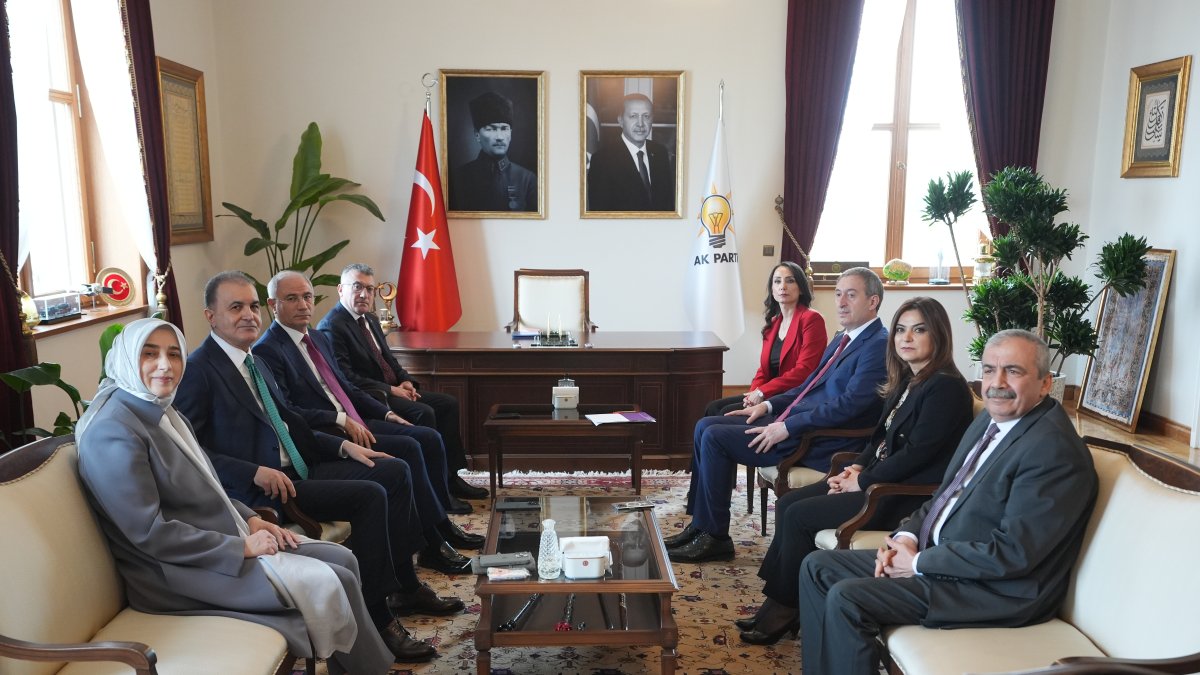



























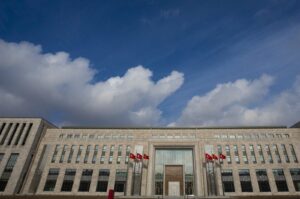

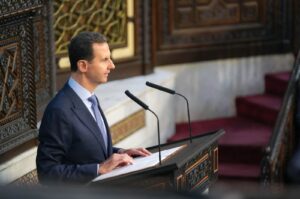
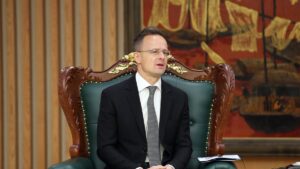
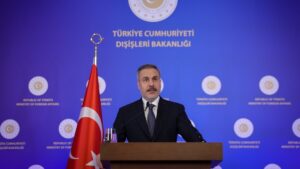
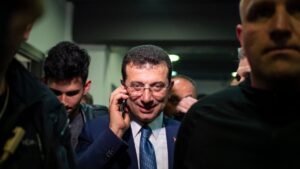
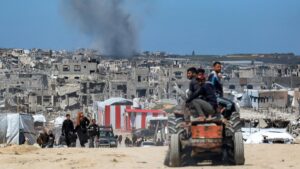
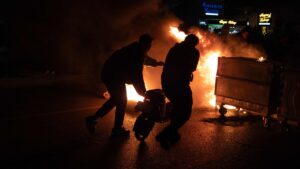
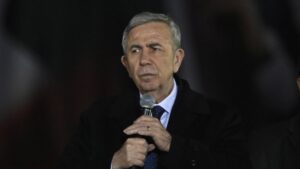

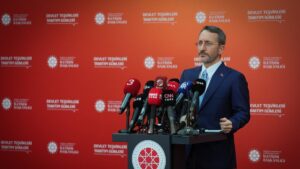





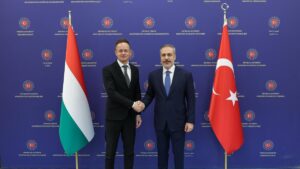
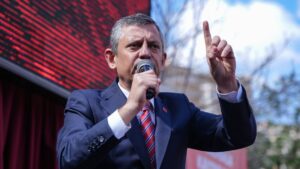
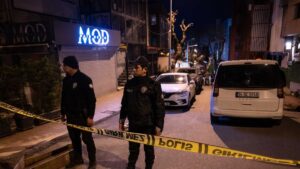
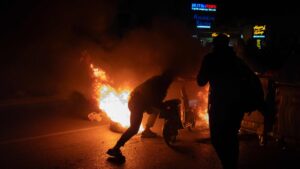
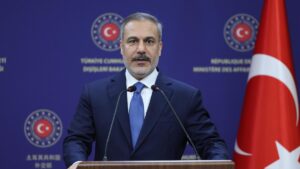
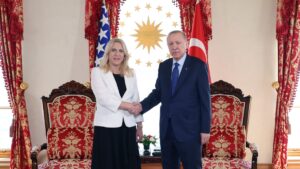
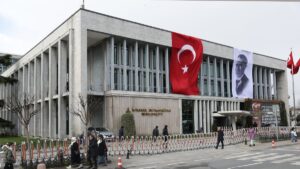
Be First to Comment